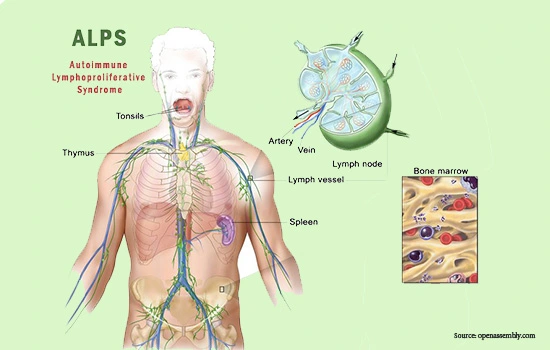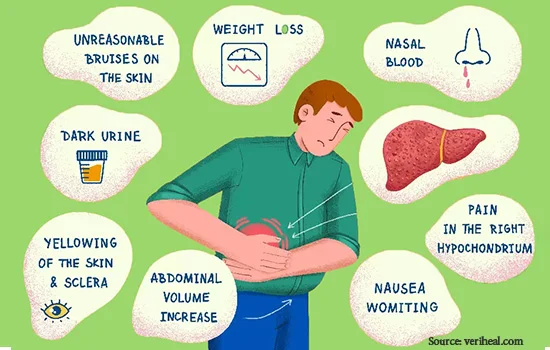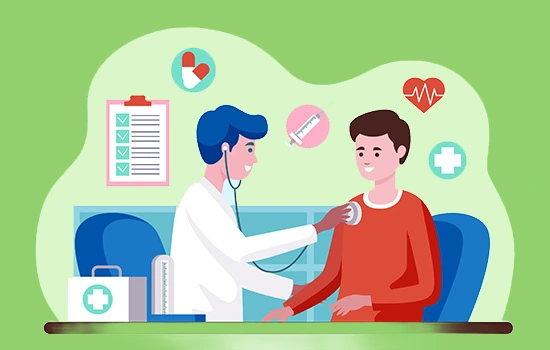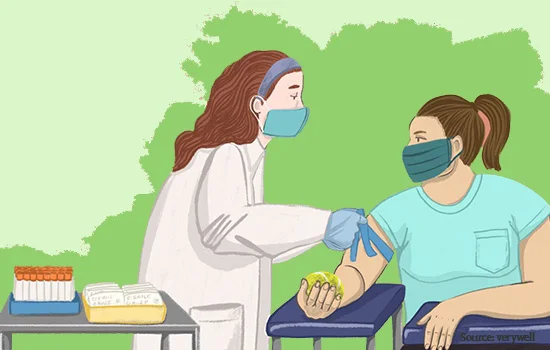
Autoimmune Lymphoproliferative Syndrome (ALPS)
What is ALPS?
ALPS is an extremely rare (approximately 500 total people in the world have it) autoimmune disease. It is the result of a genetic mutation that allows for an excessive number of lymphocytes (lymphoproliferation), causing enlargement of lymph nodes and spleen. This excessive number of lymphocytes may spread to other parts of the body, particularly blood cells which may lead to cancer. ALPS can also cause thrombocytopenia – a low level of platelets.


Signs and Symptoms
ALPS is usually found before the age of 5 years. The main symptoms are enlarged lymph nodes and spleen. Enlargement may become severe in children. Swollen lymph nodes in the neck, armpit, and groin are the most noticeable symptoms.
Diagnosis
The diagnosis of ALPS can be challenging as the symptoms are common to other disorders. Consulting a general physician is a good first step as they can run routine blood tests and check for infections that could be causing the symptoms. If there is no clear cause in these tests, the general physician will likely refer you to an oncologist to check for lymphoma and other disorders. These medical specialists can look for things like double-negative T lymphocytes and may take biopsies to confirm the genetic mutation.


Treatment
In some cases, doctors do not prescribe any medicines but require monitoring of the blood cells and the size of their glands. In other cases, patients may have to take medication for the overgrowth of lymphocytes. Immunosuppressive medicines such as steroids are an option and in some cases may be required in low dose permanently to control the symptoms.
Only 50% of patients with ALPS require immunosuppression as a treatment. The important goal of the treatment is to resolve life-threatening cytopenia and avoid splenectomy. Short duration treatment with a high dose of corticosteroids has proved useful in some cases.
Prognosis
The unfortunate part of ALPS is that there is no long-term data available as it has been identified only recently. But patients with ALPS have an increased risk of developing Hodgkin and non-Hodgkin lymphoma.

Managing Lymphoproliferation
The best approach to managing the symptoms is to have regular surveillance check-ups with your oncologist. In these visits the doctor will perform clinical evaluations (looking and feeling for enlarged organs and lymph nodes) and will likely have blood work done to confirm counts of specific cells.
Unlike other diseases, the symptoms and impact of ALPS may vary from person to person so the treatment plan must be customized. Please remember to document symptoms and challenges to share with your doctor during regular check-ups as this will help them devise an appropriate treatment plan for your individual case.
Because of a limited understanding of the disease, there is currently no cure. So the key is early detection, followed by treatment to manage the symptoms, and regular check-ups to adjust treatment as needed. It is also important to encourage the patient to be positive and to live a healthy lifestyle, avoiding junk foods, and getting regular exercise.